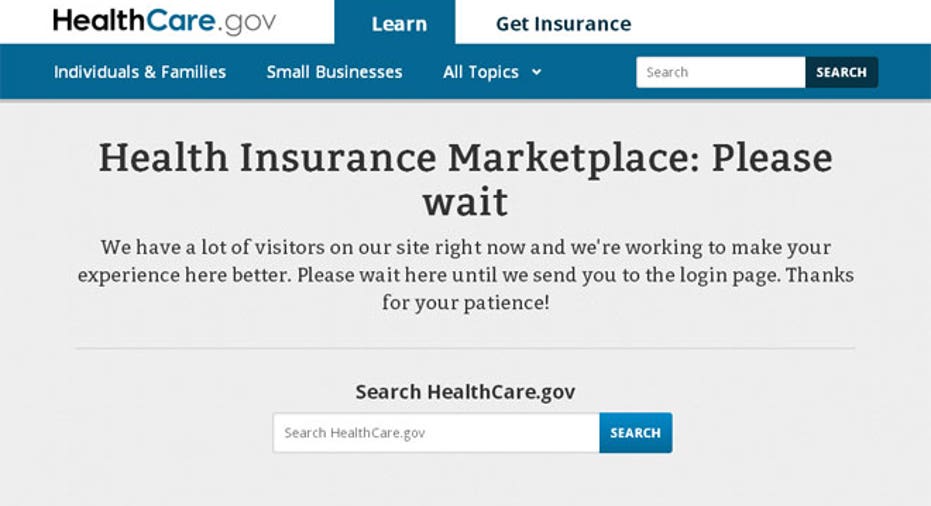Grading ObamaCare Week 3: Glitches Remain as Weak Enrollment Numbers Emerge

As the Affordable Care Act’s open enrollment season closes out its third week, the insurance exchanges that Americans are supposed to use to buy coverage are still plagued with glitches as precise enrollment numbers remain elusive.
Insurance carriers listed on the federal exchange have reportedly been getting flawed data that make it hard to handle any new customers.
The Wall Street Journal reports more than a dozen insurance companies have received data from the online marketplaces filled with errors, including duplicate enrollments, missing data and some spouses being reported as children.
“Insurance executives are complaining that they are getting enrollments [and] then they are dropping off,” says Devon Herrick, senior analyst at the National Center for Policy Analysis. “This data seems to be an issue—insurance companies have actually had to call up the applicants. This is very labor intensive for an exchange that should be efficient and fast.”
Since the Oct. 1 launch, state-run exchanges have outperformed the federal-run marketplaces, and some states have started reporting some enrollment numbers. The federally-run exchange has been approving because traffic numbers have dropped off, Herrick claims.
He maintains state exchanges are also running better because states likely felt political pressure to have their exchanges perform equally or better than the federal government’s exchange, which is operating either fully or partially in 36 states.
The Department of Health and Human Services (HHS) says 17 million people have visited the site Healthcare.gov in its first two weeks, but traffic has dropped off 88% during this same time period from Oct. 1 through Oct. 13, according to an analysis Millward Brown prepared for U.S. Kantar Insight.
“If you look at Kentucky, for example, that exchange is doing well and it has fewer bells and whistles,” he says. “Having the exchange fail makes the state look bad, so many have tested them because it is so political.”
Herrick says overall, he would give exchange performance a “barely passing” grade for this week, and is hopeful these glitches will be resolved quickly.
Time is of the essence, says Larry Kocot, visiting fellow at The Brookings Institution, who is hopeful the administration makes fixing these problems a priority.
“They need to fix the issues with this rollout sooner rather than later,” he says. Delaying a fix could become a big problem as the end of the enrollment season ends and uninsured consumers flood the exchanges.
Enrollment numbers in many cases also still remain a mystery, and in some cases are dismal. In Alaska, only seven people have been able successful getting coverage in three weeks, seven times more than in Delaware.
Kocot maintains there is still plenty of time during the open enrollment period, which runs through May 31, 2014. After that point, every American must have insurance coverage, or face a penalty of $95 per year for failing to comply with the law. He says that if the issues aren’t worked out on the federal exchanges, it’s going to be hard for the administration to impose penalties.
“The numbers could impact people’s perceptions [of the exchanges], but that is hard to tell at this point,” he says. “In the next several days, if they can turn around the press coverage and get more positive news out there, that may help.”
Kocot, who worked on the Medicare Part D rollout in 2006, says exchanges should be collecting the information of those who are having issues signing up so that they can follow up with these people and not risk losing potential policy holders.
“They shouldn’t be letting these people walk away,” he says. “They need to capture their IDs with a name and number where someone can reach them.”
Kocot isn’t ready to give a grade to exchanges roll out, saying he wants to wait until the one-month mark to give a full letter grade, but he does admit these glitches need fixing immediately.
“Data transfer problems are to be expected, and should be relatively easy to sort out,” he says. “If they don’t fix these issues going forward, that could be problematic.”



















